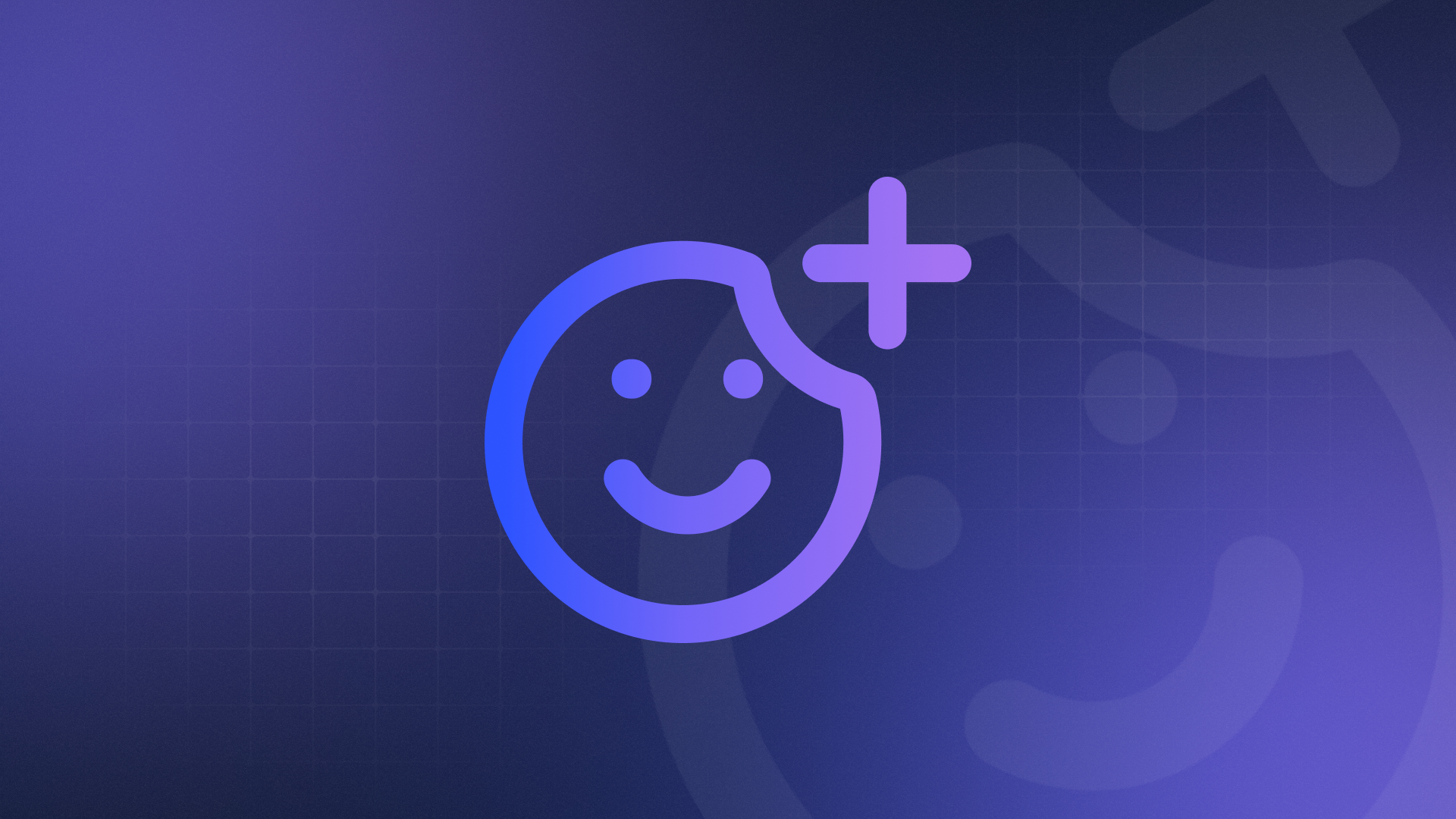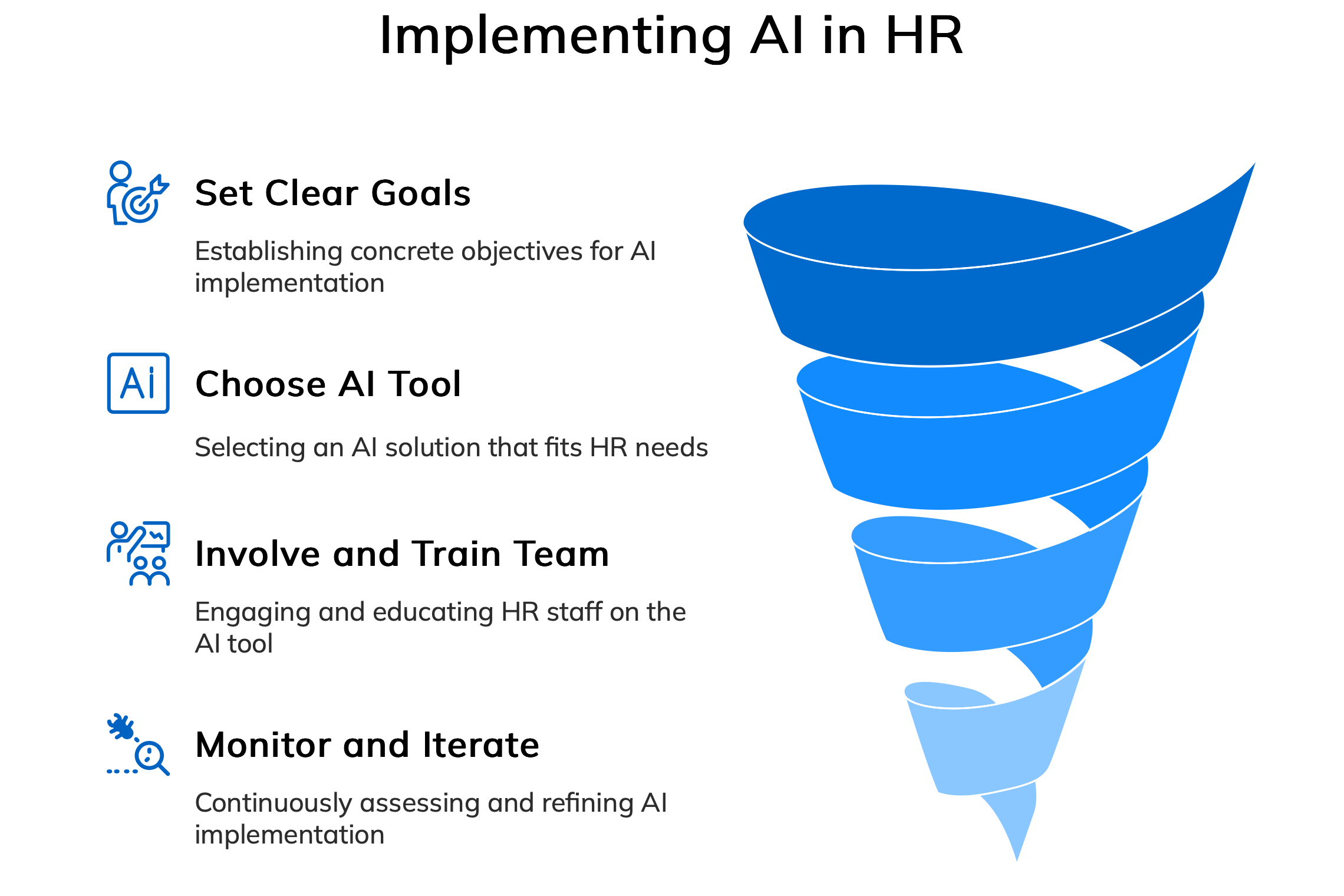
If you’ve ever wished for an extra set of hands (or maybe ten) in HR, you’re in good company. HR teams today juggle recruiting, onboarding, engagement, performance management, and compliance – all at once. It’s easy for something to slip through the cracks.
That’s where AI Agents for HR comes in. AI tools for HR act as tireless assistants that can streamline HR workflows – sourcing candidates, answering routine questions, crunching employee data, and more – 24/7. In fact, 76% of HR leaders believe that not adopting AI in the next 1–2 years will leave their organization at a disadvantage.
These AI for HR solutions bring many benefits – from saving time and cutting costs to improving fairness and decision quality. Let’s see how that works in key HR areas.
AI in Recruiting: Smarter Talent Acquisition
Recruiting is a prime area where AI agents shine. Traditional hiring involves mountains of resumes, endless scheduling, and human bias risks. AI tools for HR recruitment can automate these tedious parts of talent acquisition, making hiring faster and fairer. For example:
- Resume screening and shortlisting: AI agents can instantly scan resumes and applications to find candidates who meet your criteria. This reduces days of manual sorting to minutes and ensures no promising applicant is overlooked. Because AI focuses only on qualifications, it helps keep the screening process objective and merit-based.
- Candidate chatbots and scheduling: AI chatbots engage candidates in real time, answering questions and even handling initial interviews via chat. They also take over scheduling logistics automatically. For instance, Chipotle’s AI hiring assistant chats with applicants and schedules interviews across 3,500 locations, reducing time-to-hire by up to 75%.
By using AI in recruiting, companies save recruiters countless hours and often improve hire quality. The HR team can spend more time personally engaging top candidates while the AI handles the heavy lifting in the background.
Streamlining Onboarding with AI Agents
Onboarding new employees can be much smoother and more consistent with AI assistance. Instead of overwhelming new hires with piles of documents and one-size-fits-all orientations, an AI agent for HR onboarding provides a guided, interactive experience:
- Personalized 24/7 onboarding buddy: Each new hire gets a virtual assistant to walk them through onboarding. It answers questions at any time (like “How do I set up my benefits?”) and provides the right resources based on the role. This approach prevents information overload and helps new hires ramp up faster.
- Automated paperwork and reminders: AI agents can auto-generate and collect required documents digitally, from tax forms to IT setup checklists. They send reminders to complete tasks and alert HR if something is missing. This ensures nothing falls through the cracks – every form is submitted, and every training module is completed on time.
With an AI-driven onboarding process, HR can focus on the personal welcome and cultural integration while the AI handles the paperwork and common queries. New employees start their jobs feeling informed and supported, which leads to faster productivity and better retention.
Boosting Employee Engagement with AI Tools
AI can play a big role in keeping employees informed and engaged. By providing quick answers and analyzing feedback, AI tools for HR ensure employees feel supported and heard. Here are a couple of ways AI enhances day-to-day employee engagement:
- Instant self-service HR help: An internal HR chatbot can answer common questions 24/7 – about policies or benefits, for example. This on-demand helpdesk means employees get answers in seconds, not days, and HR staff spend far less time on repetitive FAQs.
- Mood checks and feedback analysis: AI can send brief pulse surveys or analyze employee feedback (like survey comments or chat sentiments) to gauge morale. Based on sentiment, it might detect if a team is showing signs of burnout or low engagement. HR can then step in proactively with support or solutions before small issues escalate.
Companies create a more responsive workplace by weaving AI into the employee experience. Employees know support is always available, and HR can devote more effort to meaningful engagement strategies instead of clerical tasks.
AI-Powered Performance Management
Managing employee performance and growth generates a lot of data, and AI helps make sense of it. AI for HR in performance management makes evaluations more fair and actionable. For example:
- Fair, unbiased reviews: AI can analyze performance review text and ratings to spot patterns of bias or inconsistency. If, say, women on a team consistently get softer feedback than men, the AI will flag it. By alerting managers to potential blind spots, AI encourages more objective, equitable evaluations.
- Personalized growth suggestions: Based on an employee’s skills, goals, and performance history, AI agents can recommend targeted development opportunities. It can suggest courses or roles that match an employee’s strengths. DHL used AI to upskill internal talent and saved over 10% in recruiting costs by promoting from within.
In short, AI in performance management provides managers with better insights and helps employees with tailored guidance. This leads to more transparent career development and a stronger, merit-based culture.
Ensuring HR Compliance and Policy Adherence
Staying compliant with labor laws and company policies is crucial, and it’s an area where AI agents excel at detail-oriented tasks. They act as tireless watchdogs for HR. Key compliance benefits include:
- Policy enforcement and record-keeping: AI can monitor HR processes to ensure every required step is taken and log it for records. For example, it won’t let a new hire skip mandatory forms or training and keeps a record of completion. All necessary documentation (hiring reports, training logs, etc.) stays organized and easily retrievable.
- Staying ahead of law changes: AI tools remain up-to-date with changing regulations. If a new labor law or privacy rule comes out, the AI can alert HR and even suggest policy adjustments to comply. This proactive monitoring helps avoid violations by catching issues early.
By handling the nitty-gritty of compliance, AI agents free HR professionals to focus on strategic work with peace of mind that nothing is slipping through the cracks.
Getting Started with AI Agents in HR
Ready to bring AI into your HR workflow? It might feel daunting, but starting small is the way to go. Here’s a quick roadmap:

#1. Start small with a clear goal
Identify an HR pain point and launch a pilot project there. Choose a task that consumes a lot of time (like handling repetitive inquiries or screening applicants) and set a concrete goal (e.g., cut response time from days to minutes, or reduce hiring time by 30%).
#2. Choose the right tool
Whether you opt for an off-the-shelf platform or build a custom AI agent for HR, ensure it integrates with your current systems and covers your requirements. Key factors to consider include HR-specific features, ease of use, security (data privacy), and the vendor’s track record in AI ethics.
One of the best options is CogniAgent – cognitive AI platform, designed specifically for HR workflows.
#3. Involve the team and train users
Get your HR team involved in configuring and fine-tuning the AI – their expertise will make it better. Also, train the end users (HR staff or employees) to use the new tool. Encourage feedback so people trust and embrace the AI assistant.
#4. Monitor results and iterate
Keep an eye on the outcomes (time saved, user satisfaction, error reduction, etc.). Use this feedback to adjust the AI’s behavior or fix any hiccups. When the pilot meets its goals, you can confidently expand the AI to other HR processes step by step.
By following these steps, you can introduce AI into HR in a controlled, low-risk way and build on successes as you grow.
Meet CogniAgent – Your Partner in Building AI Agents for HR
CogniAgent makes it incredibly easy for HR teams to build powerful, no-code AI agents that simplify and streamline HR operations – without traditional AI development’s complexity or high costs.
Here’s how CogniAgent stands out for HR professionals:
No-Code, Fast Setup
Build and launch HR-focused AI agents in as little as 2 weeks using CogniAgent’s drag-and-drop interface and ready-to-use HR templates – no programming needed.
Pre-Built HR Templates
Whether you’re automating candidate screening, onboarding, employee support, or performance check-ins, CogniAgent offers pre-designed agents tailored to common HR workflows.
Personalized Employee Experiences
Deliver relevant, timely support based on employee roles, lifecycle stage, and individual needs – boosting satisfaction, engagement, and retention.
24/7 HR Assistance
CogniAgent-powered agents work round the clock – answering policy questions, guiding new hires, and supporting employees even outside business hours.
Seamless Integration
Connect easily with your existing HR tech stack – including ATS, HRIS, payroll, and communication tools – to ensure smooth data flow and consistent experiences.
Scalable Solutions for Any Team
From DIY starter agents for growing teams to enterprise-grade solutions with advanced reasoning, document handling, and long-term memory, CogniAgent grows with your HR needs.
Conclusion: Embracing AI as Your HR Ally
AI agents for HR aren’t a far-off idea – they’re here today and quickly becoming a must-have in modern HR departments. From hiring faster and more fairly to giving employees instant support and analyzing HR data for insights, these tools are transforming how HR works.
Most importantly, adopting AI for HR is about amplifying what humans do best, not replacing HR professionals. By offloading that drudgery to AI solutions, your HR team can focus on strategic initiatives and personal connections that drive company culture forward.
![How to Use AI for HR Workflow Agents [Banner] How to Use AI for HR Workflow Agents [Banner]](https://cogniagent.ai/wp-content/uploads/2025/04/How-to-Use-AI-for-HR-Workflow-Agents-Banner.png)